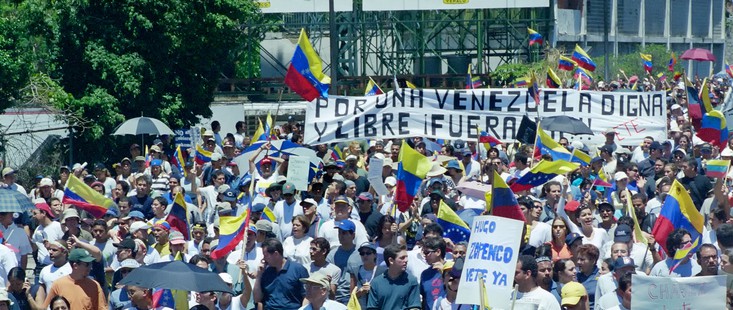Our Opinion: 2017
Venezuela : Tensions Reach New Highs

Following Sunday’s Constituent Assembly vote, the stage is now set for a further escalation of tensions in Venezuela. The opposition will continue to raise pressure on the ruling party. Externally, the US is threatening new sanctions. Coordination with European and Latin American countries regarding the sanctions would increase their impact, and cannot be ruled out.
Despite serious and repeated attempts by the opposition and the international community to make President Nicolas Maduro reconsider his plan to reform the constitution, Venezuelans voted on the Constituent Assembly on Sunday. The turnout at the election was relatively low and several deadly clashes took place.
The opposition, emboldened by the collection of close to 7.5m votes against the constitutional reform during the unofficial 16 July referendum, and supported by a steady momentum following 100-plus days of protests, will likely continue to raise pressure on the ruling party through street demonstrations and strikes.
Meanwhile, the Trump administration has been threatening “economic actions” on Venezuela. The severity of additional sanctions will likely depend on how radical Maduro becomes in the next few days – for instance, whether he dismantles the current National Assembly or not.
Sanctions could include a ban on US oil exports to Venezuela, which imports nearly 200,000 barrels per day of oil diluents for its extra heavy crude oil. refined gasoline and diesel oil for domestic consumption. A ban on US oil imports from Venezuela is likely, which would be damaging as the country is the third largest exporter of oil to the US, shipping about 750,000 barrels per day. In addition, financial sanctions could follow, prohibiting US financial services firms and oil servicing companies from doing business with the Venezuelan government. Rather than a blanket financial ban, targeted restrictions could alternatively be implemented.
In the midst of increased pressure from the domestic and external players, the behaviour of the Venezuelan Armed Forces, which have been supportive of the Maduro administration so far, must be under the spotlight. At some point, they might find it in its best interest to promote a change of regime.
Two outcomes are likely.
There could be a managed transition. Pressure on the the incumbent could rise and the military step in eventually, assuming temporary control, and finally calling for a new election.
Alternatively, Maduro or the military postpone the election indefinitely. Venezuela becomes increasingly isolated and faces heavy sanctions from the international community. In that event, Investors will inevitably face large losses, even from current depressed bond price levels.
Predicting the exact timing of a change in power dynamics in Venezuela is nigh impossible. However, conditions seem to be in place for either scenario to materialize soon. In other words, we are fast approaching a fork in Venezuela’s political road.
31st July 2017
